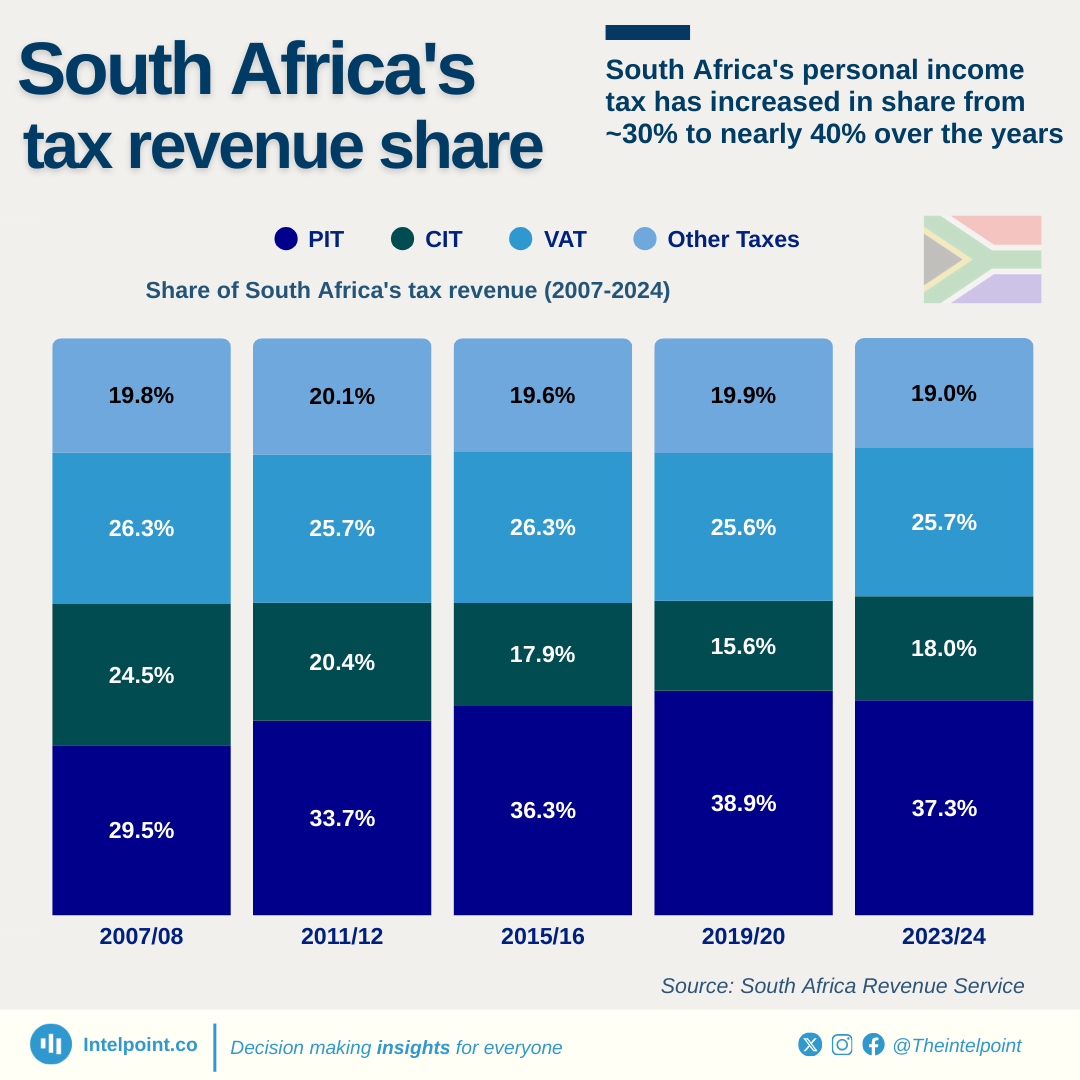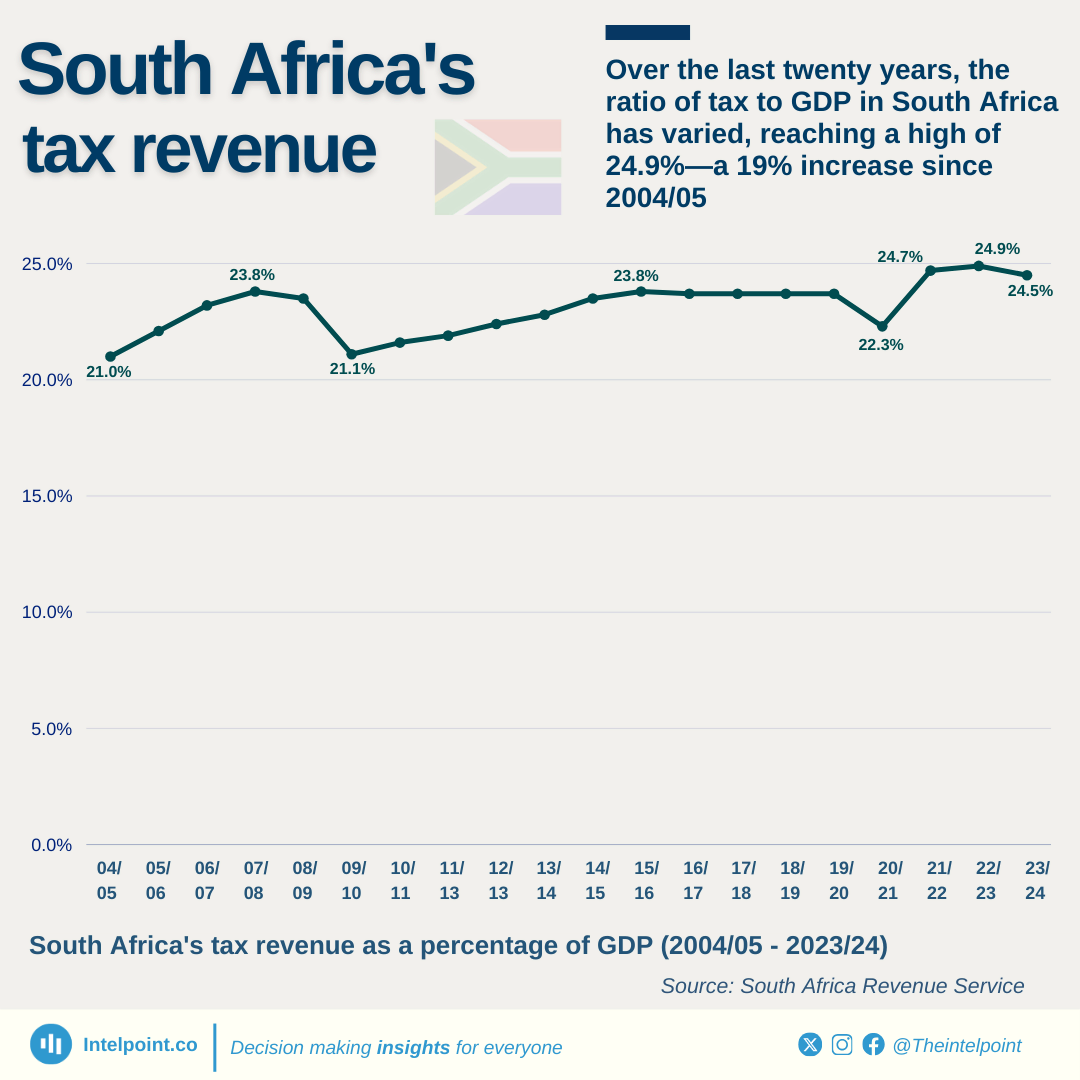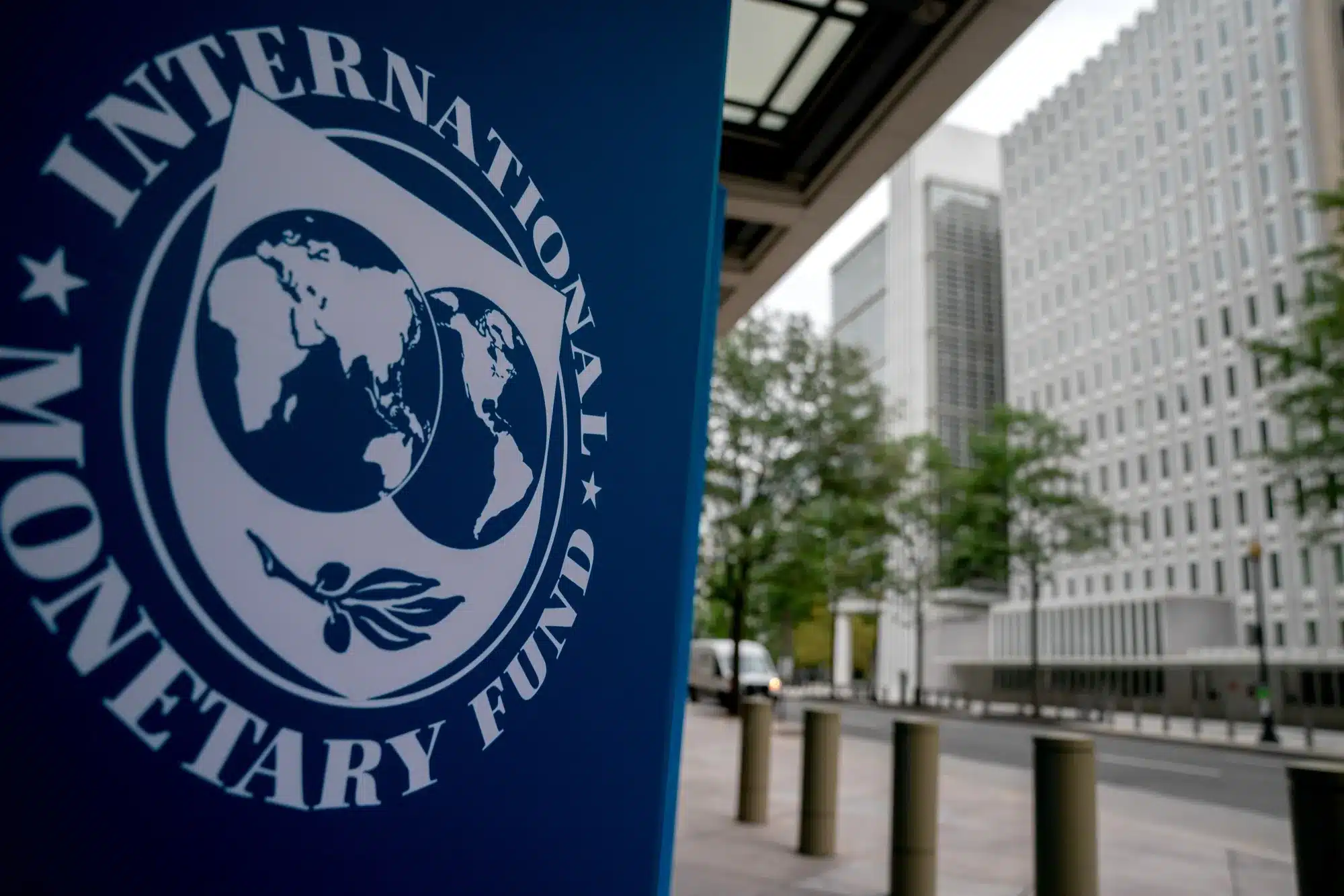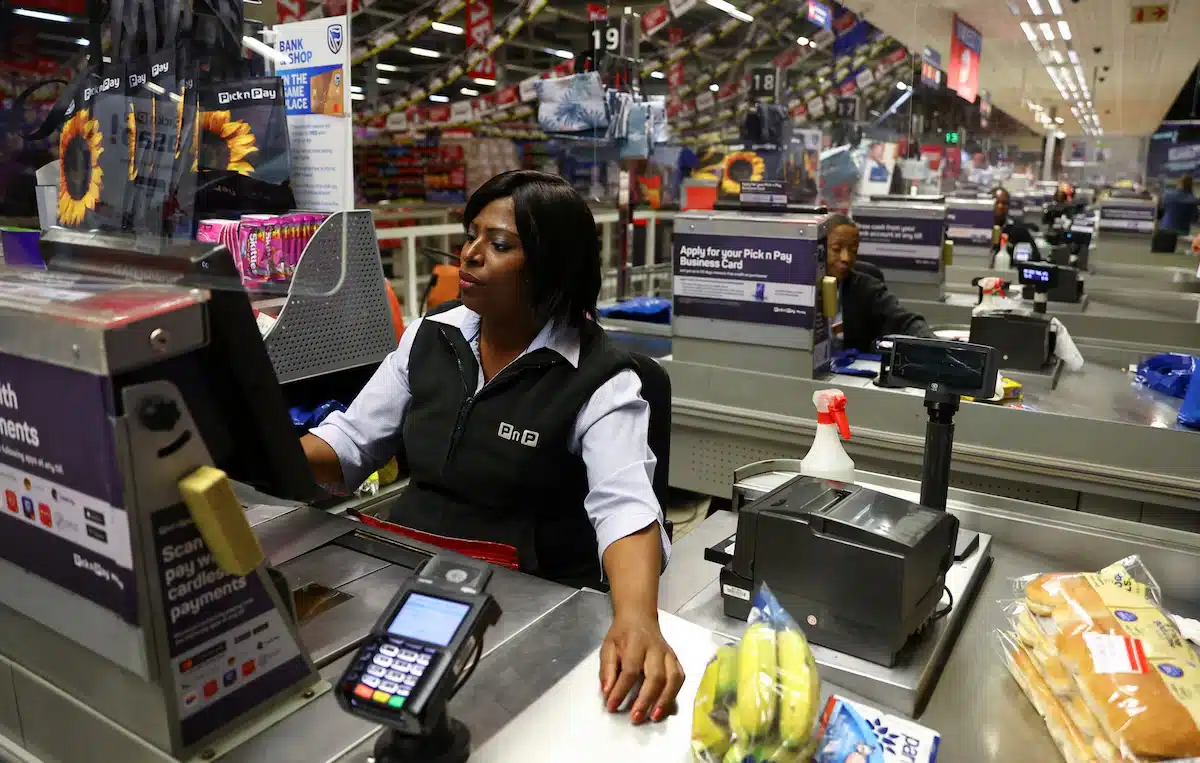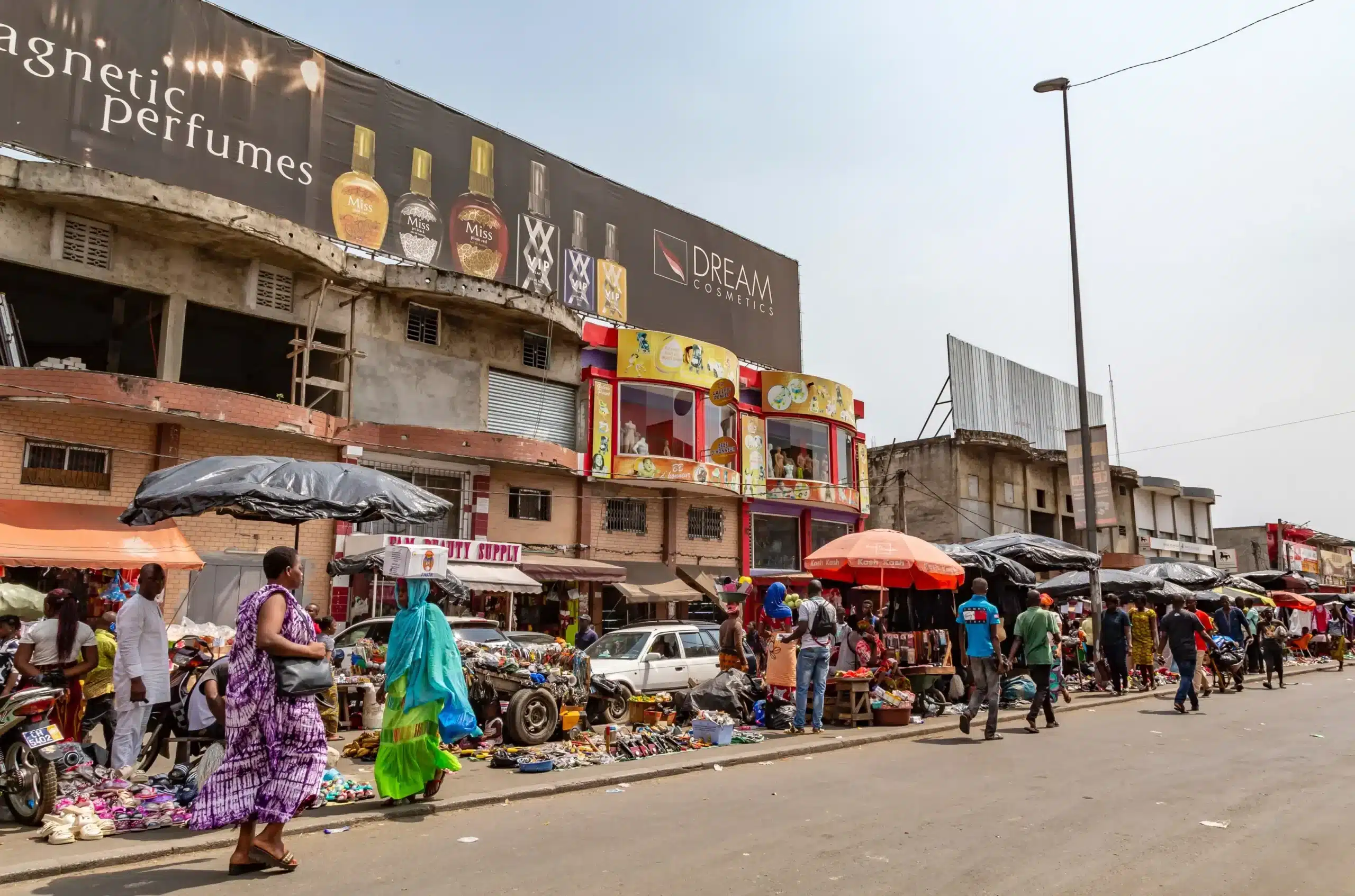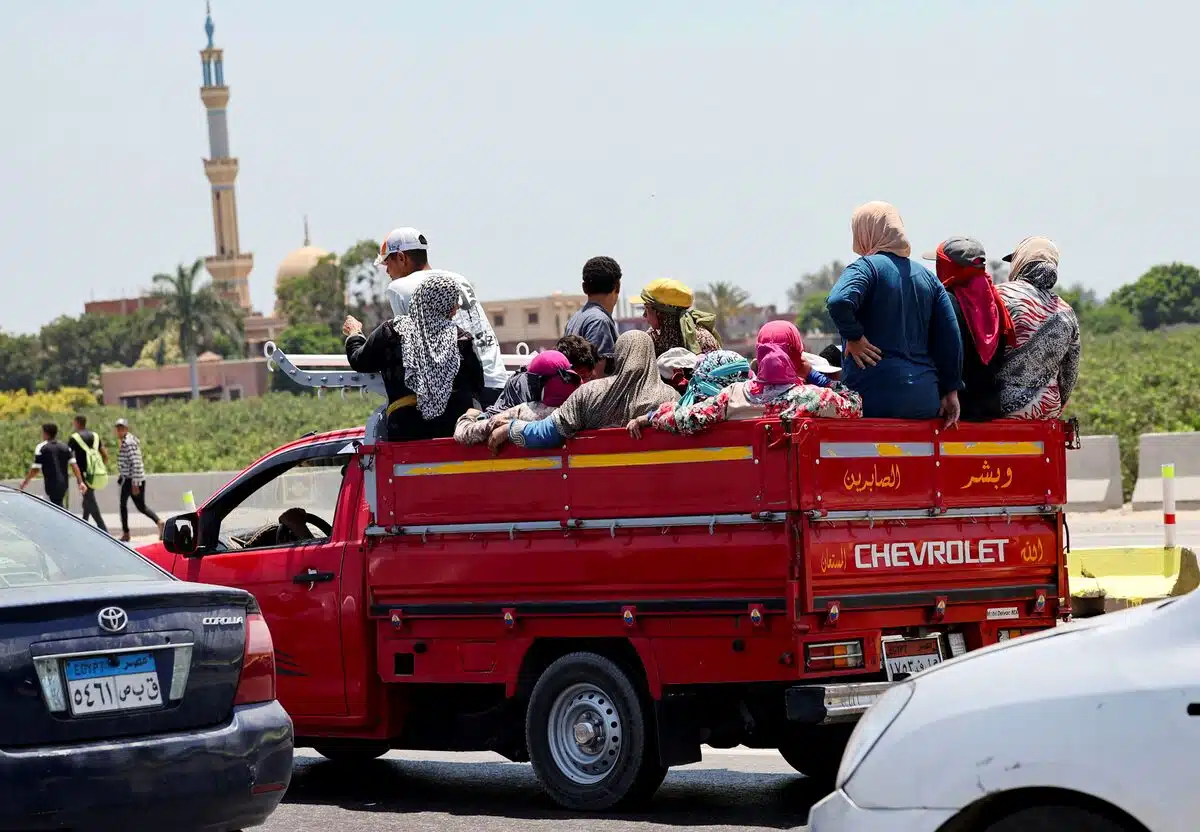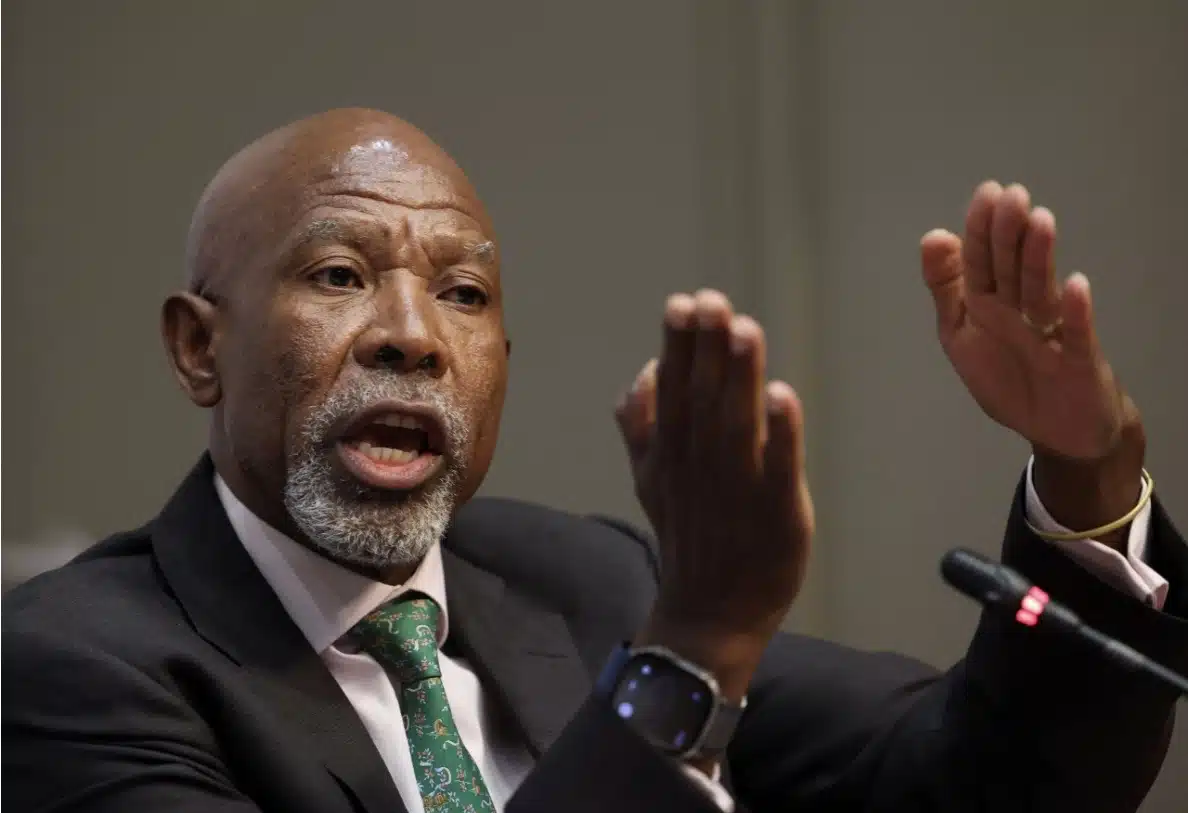South Africa’s minibus taxi industry is the backbone of the country’s public transport system.
Every day, millions rely on it to get to work, school, and everywhere in between.
According to the National Household Travel Survey 2020, taxis account for 80.2% of the country’s 4.7 million daily public transport trips, from 67.6% in 2013. Despite its dominance, the industry’s tax contributions are disproportionately low.
Tax gaps in the taxi sector
With an estimated annual revenue of $4.74 billion (R90 billion), the sector has the potential to make a meaningful tax contribution especially as it concerns corporate income tax.
This is because taxi associations, not individual drivers, are registered as businesses, making them liable for corporate income tax.
As business entities, they generate income through membership fees, fines, and administrative services, which subjects them to the same tax rules as other profit-earning organisations.
Despite this, in 2021, the sector paid just $263,000 (R5 million) in corporate income tax. That’s a fraction of what should be flowing into state coffers.
The South African Revenue Service (SARS) is potentially missing out on;
- Corporate Income Tax: $189 million (R3.6 billion) from taxi operators.
- Value-Added Tax (VAT): $354 million (R6.75 billion) in uncollected VAT on fares.
- Pay-As-You-Earn (PAYE) Tax: $100 million (R1.91 billion) that could be collected if the industry operated under formal tax regulations.
In case you’re wondering why VAT and PAYE are part of the discussion, here’s how;
If taxi operators were registered for VAT, they would need to charge 15% on fares, just like bus companies and e-hailing services. Since most aren’t, SARS loses that revenue.
PAYE, on the other hand, applies when businesses have employees. If taxi associations or fleet owners formally hired drivers and staff, they would deduct and remit PAYE.
But with most drivers working as independent contractors, PAYE is rarely enforced.
Add to this the partial payment of fuel levies and Road Accident Fund contributions, and the total tax loss reaches between $1.05 billion and $1.32 billion (R20 billion–R25 billion) annually.
That’s roughly the same amount South African President Cyril Ramaphosa pledged to support black-owned and small businesses.
Compare this to South Africa’s corporate giants. In 2023, Shoprite generated $11.46 billion (R215 billion) in revenue and paid $150 million (R2.8 billion) in income tax. Of this amount, $131 million (R2.46 billion) went directly to the South African government.
Uber’s platform also contributed approximately R17 billion to South Africa’s economy.
MTN Group’s total tax contribution across its markets hit nearly $3.3 billion (R61.7 billion), with South Africa’s share estimated at around $363 million (R6.8 billion). The contrast is difficult to ignore.
While corporations operate under strict tax regulations, the taxi industry, despite its dominance in public transport, contributes relatively little in comparison.
Why taxing the taxi industry is difficult
SARS has long recognised the tax gap in South Africa’s minibus taxi industry, but efforts to improve compliance face several challenges.
One major issue is the industry’s informal nature. With fares collected in cash and little financial documentation, tracking revenue and enforcing tax compliance is difficult.
Unlike structured businesses, most taxi operators do not keep records of their earnings.
Politics also plays a role. The industry is highly organised and influential, with groups like SANTACO and the NTA resisting regulatory changes.
Strikes and protests have been used to push back against stricter licensing, fare regulation, and taxation.
In 2023, SANTACO-WC withdrew from the Minibus Taxi Task Team over disputes on vehicle impoundments, highlighting the industry’s power in policy negotiations.
Economic concerns add another layer. Taxi associations argue that increased taxes would lead to higher fares, hurting low-income commuters.
They also point to unequal government subsidies, while bus operators receive financial support, minibus taxis do not, despite carrying most public transport passengers.
As a result, billions in potential tax revenue remain uncollected. While SARS has explored ways to formalise the industry’s tax contributions, informality, political influence, and economic concerns continue to hinder enforcement.
A tax expert’s perspective
We spoke to the CEO of Irhafu and a tax educator, Andre Bothma, about the taxi industry’s tax situation.
According to him, “most taxis operate on a cash basis, making proper record-keeping rare and tax enforcement difficult.”
Because of this, he believes very little income tax is actually collected from the sector.
He further explained that “the main tax contribution from taxi operators comes through fuel levies rather than direct income tax.”
While taxi drivers pay membership fees to associations, Bothma clarified that “these payments function more like internal dues than formal tax contributions.”
A different view
Mbali Ntuli, a former politician and the CEO of Ground Work Collective however argued that the taxi industry is more compliant with tax laws than many assume, with 89% of operators registered and paying income tax, VAT, and levies.
She dismissed the belief that taxi owners hoard cash to evade taxes, stating that South Africa’s financial regulations make it nearly impossible.
Since operators need to finance new vehicles, they must bank their earnings, leaving little room for large-scale tax evasion.
On unlicensed taxis, she explained that while some operate illegally, others are caught in bureaucratic delays.
Many owners apply for operating licenses, but government inefficiencies leave them waiting indefinitely, forcing them to use application receipts as proof.
She also criticised impoundments, saying taxis are sometimes seized for issues beyond the owner’s control. Instead of escalating penalties, some provinces, like the Western Cape, move straight to impoundment, worsening tensions with operators.
Addressing accusations that taxis deliberately undermined South Africa’s rail system, she dismissed the claim, arguing that taxis coexisted with rail for decades and that rail’s decline has well-documented causes unrelated to the industry.
While she acknowledged violence within the sector, she clarified that it is mostly internal, with passengers considered sacred.
She also highlighted the industry’s long history of supporting black economic empowerment, with businesses passed down within families and associations funding scholarships, teachers’ housing, and other community initiatives.
A bumpy ride for competitors
A $5.26 billion (R100 billion) industry paying almost no tax raises concerns about fairness in the transport sector.
Ride-hailing companies like Uber and Bolt, which compete directly with taxis, pay 15% tax on service and booking fees.
Logistics companies using vans and buses also follow strict tax rules, and even traditional bus operators like Putco pay VAT and corporate tax.
For businesses that follow the rules, this creates an uneven playing field. While they deal with rising costs and tax obligations, minibus taxis operate with far fewer financial pressures.
But the real winners aren’t the drivers, it’s the taxi associations and fleet owners who control fares and finances.
Many of these associations are registered businesses and should be paying corporate tax, but weak enforcement lets them under report earnings or skip taxes entirely.
The ride-hailing industry is a prime example. Uber and Bolt already struggle to turn a profit in South Africa due to high costs and regulatory hurdles.
In 2022, Uber launched UberGo, a cheaper service, to compete with taxis. But even with lower fares, ride-hailing companies still pay VAT and corporate tax, something minibus taxis continue to avoid.
Logistics companies face similar struggles. They keep financial records, follow tax laws, and price their services accordingly.
Meanwhile, minibus taxis operate informally, avoiding taxes and regulations. Even in logistics, they keep costs low while competitors follow tax rules, creating an uneven playing field.
Yet, while taxi operators benefit, drivers are barely getting by. Unlike ride-hailing drivers, who have fare breakdowns and digital records, taxi drivers are paid in cash, making income tracking nearly impossible.
They also deal with high daily rental fees, fluctuating fuel prices, and zero employment benefits. For them, tax compliance is about survival in an industry where they have little control.
Formal taxation could push fares higher, making life harder for commuters, but ignoring it shifts the tax burden to other industries.
Investors prioritise tax certainty, and when enforcement appears to depend on politics rather than clear policy, it raises concerns.
If some businesses are taxed heavily while others aren’t, it may create unfair competition as well as weaken trust in the system and puts more pressure on those who do pay.
The Government
SARS can close the tax gap in the minibus taxi industry, but it won’t happen overnight.
Taxing a sector that has operated informally for decades requires a phased approach to avoid major disruptions.
International examples show the risks of rushing policy. Zimbabwe introduced a presumptive tax on public transport operators but collected only a fraction of its target.
Ghana and Nigeria have also struggled to tax their informal sectors due to weak financial records, limited trust in tax authorities, and strong industry resistance.
A gradual approach could work better for South Africa. SARS could start with a fixed annual tax per taxi before transitioning to a structured system.
Digital fare payments could help track revenue, but since cash is deeply embedded in the industry, any shift must be slow and done in collaboration with taxi associations.
Enforcement alone won’t work. Unlike buses that get government subsidies, minibus taxis cover all costs, making taxation feel like an extra burden.
Offering fuel tax rebates or vehicle financing support could encourage compliance. SARS also needs to engage industry leaders like SANTACO and the National Taxi Alliance to avoid resistance.
Heavy-handed crackdowns could trigger protests, so a better strategy would focus on targeted audits, better record-keeping, and incentives for voluntary compliance.
The government should also ensure greater transparency within taxi associations, holding them accountable for tax compliance instead of allowing them to shield operators.
If done right, this could generate much-needed tax revenue while keeping the transport sector stable. But without industry buy-in, any attempt to tax the minibus taxi sector could quickly fall apart.



